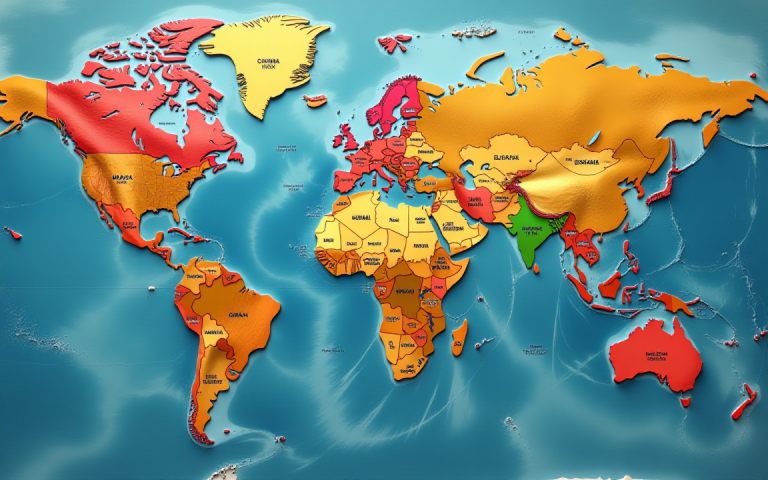The International Monetary Fund (IMF) has issued a stark warning that the ongoing global trade war presents a more formidable challenge to emerging market central banks than the COVID-19 pandemic.
As trade tensions escalate, particularly with the imposition of historically high tariffs by the United States, emerging economies are grappling with complex economic shocks that threaten growth, inflation, and financial stability.
This warning comes at a time when many of these nations are still recovering from the lingering effects of the pandemic, making the current crisis even more perilous.
According to IMF officials, the differential impacts of trade tariffs create unique policy dilemmas for central banks in emerging markets, complicating their ability to respond effectively.
The current trade war, largely driven by U.S. policies under President Donald Trump, has seen tariffs reach levels not witnessed in a century.
In April 2025, the IMF reported that these tariffs are significantly dampening global economic growth, with forecasts for the United States slashed from 2.7% to 1.8% for the year.
The ripple effects are felt worldwide, but emerging markets—economies like India, Brazil, and Thailand—are particularly vulnerable due to their reliance on global trade and foreign investment.
Unlike the COVID-19 crisis, which prompted synchronized global monetary easing, the trade war introduces asymmetric shocks, where some countries face inflationary pressures while others grapple with deflationary risks.
Why trade war trumps COVID as a threat
During the COVID-19 pandemic, central banks in emerging markets were able to implement rapid policy responses, such as slashing interest rates and injecting liquidity into their economies.
The crisis, while severe, had a somewhat uniform impact globally, allowing for coordinated action.
In contrast, the trade war’s effects are uneven, creating a patchwork of economic challenges.
IMF First Deputy Managing Director Gita Gopinath emphasized in a recent statement that tariff shocks make policy responses tougher for emerging markets.
For instance, countries heavily reliant on exports to the U.S. or China face declining demand, while others dealing with imported inflation due to higher costs of goods struggle to balance growth and price stability.
This complexity, according to the IMF, renders the trade war a ‘greater challenge’ than the pandemic for these central banks.
Implications for emerging market central banks
The policy dilemmas facing emerging market central banks are multifaceted.
Raising interest rates to combat inflation risks stifling economic growth, particularly in nations with high levels of debt.
Conversely, lowering rates to stimulate growth could exacerbate currency depreciation and capital outflows, especially as the U.S. dollar strengthens amid trade tensions.
The IMF has warned that these central banks face ‘rising uncertainty and uneven impacts,’ making it difficult to chart a clear path forward.
Moreover, the trade war exacerbates existing vulnerabilities in emerging markets, such as elevated debt levels and tightening financial conditions.
The World Trade Organization (WTO) also cut its 2025 global merchandise trade growth forecast to a decline of 0.2% from a previously expected rise of 3.0%, signaling severe spillover effects if retaliatory tariffs intensify.
The broader global economic outlook adds another layer of concern for emerging markets.
The IMF’s latest forecasts indicate slower growth and higher inflation in the U.S., while China faces deflationary pressures due to tariffs.
The IMF has cautioned that without concerted global efforts to de-escalate trade tensions, the economic fallout could deepen, with emerging markets bearing the brunt of the damage.
The post Trade war poses greater threat than COVID for emerging market central banks: IMF appeared first on Invezz

